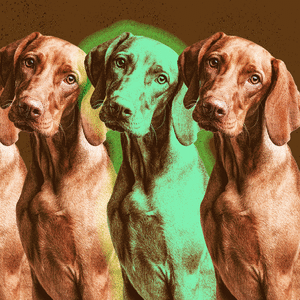In the forests of southern Germany, there are roving bands of wild boars wreaking havoc. The shaggy-haired swine have been known to bite and charge at humans with their tusks, and are highly protective of their young. However, the creatures are also known to be incredibly radioactive—so much so that they’ve been deemed unsafe to eat.
While deranged packs of radioactive pigs might seem more suited for a post-apocalyptic video game, they certainly exist and researchers have been working to understand the mysterious origins of their irradiated nature for years. Luckily, some new research offers an answer as to why the swine are imbued with radiation: nuclear bombs.
A study published Wednesday in the journal American Chemical Society found nuclear weapons testing across the globe released enough fallout into the atmosphere to irradiate the wild pigs. The findings further underscore the dangers of nuclear testing and weapons for countries around the world—even if they’re not the ultimate target of bombs.
“[The] long-forgotten atmospheric nuclear weapons tests and their fallout still cast a shadow on the environment,” co-author Georg Steinhauser, a radiochemist at Vienna University of Technology, told The Daily Beast. “Just because they took place 60 years ago doesn’t mean that they no longer impact the ecosystem.”
Scientists have known for years that a population of wild boars in southern Germany contained incredibly high levels of radioactive cesium. They long suspected that much of this is due to the 1986 Chernobyl nuclear disaster that released enormous amounts of cesium-137—a specific isotope produced by nuclear reactors—into the air where it spread over Europe and, eventually, leached into the boar’s food source.
However, the boars differed from other creatures in the region in notable ways. For one, the amount of cesium-137 greatly declined in other animals throughout southern Germany due to its half-life. Yet, the wild boars remained fairly radioactive. That’s why Steinhauser and his colleagues decided to investigate.
After testing the meat from various wild boars, they discovered that the animals actually contained a high level of cesium-135—which is a much longer lasting radioactive isotope that’s produced primarily by nuclear weapons exploding. Whenever there was a nuke test, the cesium would spread throughout the Earth and eventually settle down to the ground. The isotopes eventually made their way to the wild boars’ underground food source of deer truffles—which soaked up more and more cesium over time like a sponge.
“The atmospheric nuclear weapons tests conducted by any nation impacted the entire northern hemisphere quite evenly,” Steinhauser explained. “There is an enormous upward draft after an explosion; by the time the fallout falls down to Earth, the radioactive material has evenly distributed in the higher atmosphere.”
Roughly 88 percent of the 48 meat samples the team analyzed exceeded Germany’s regulatory requirements for radioactive cesium in food. They also found that between 10 and 68 percent of the radiation was caused by nuclear weapons testing throughout the 20th century. Since the boars’ food source so effectively harbored the isotopes, the radiation persists in the creatures to this day—and potentially well into the future.
That isn’t to say that Chernobyl didn’t add to the radiation. The disaster certainly added to the wild boar population’s current state. However, the latest study has found that humans have—once again—irreparably damaged their ecosystems in surprising ways due to nuclear weapons tests.
“Our study is a cautionary tale: We as humanity must take good care of the environment and prevent any releases [radioactive isotopes] at all cost,” Steinhauser added. “Any further release will add to existing contamination levels like a snowball effect.”
So, while Oppenheimer has been making waves in the box office, it’s not the only nuclear story that’s bringing home the bacon. Just make sure not to eat any of the wild boar in southern Germany. You might glow a bit afterwards.








